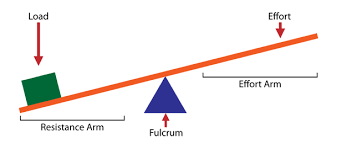lever
英 [ˈliː.vər]
美 [ˈlev.ɚ]
- n. 杠杆;控制杆
- vt. 用杠杆撬动;把…作为杠杆
- vi. 用杠杆撬
- n. (Lever)人名;(法)勒韦;(英)利弗;(德)莱韦尔
使用频率:

中文词源
lever 杠杆
来自拉丁语levare,升起,举起,来自PIE*legwh,轻的,可举起的,词源同light,levitate.引申词义杠杆。
英语词源
- lever (n.)
- c. 1300, from Old French levier (Modern French leveur) "a lifter, a lever," agent noun from lever "to raise," from Latin levare "to raise," from levis "light" in weight, from PIE root *legwh- "light, having little weight; easy, agile, nimble" (cognates: Sanskrit laghuh "quick, small;" Greek elakhys "small," elaphros "light;" Old Church Slavonic liguku, Lithuanian lengvas "light;" Old Irish laigiu "smaller, worse;" Gothic leihts, Old English leoht "light" (adj.)). As a verb, 1856, from the noun.
权威例句
- 1. An elevator mechanic can work the machinery directly by turning this lever.
- 电梯修理工可以转动这根杠杆直接操作机器。
- 2. Press the lever until you hear the catch engage.
- 压下挡杆,直到听到挡挂好。
- 3. I put the coin in the machine and pulled the lever.
- 我把硬币投入机器,拉动控制杆。
- 4. He pushed a lever that speeded up the car.
- 他挂挡加快了速度。
- 5. Push the tiny lever on the lock.
- 按一下锁上的小柄。
